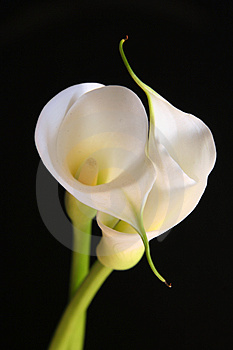Mischa Maisky, El Canto del Cisne (Schwanengesang), Franz Schubert.
Rimas Sacras, Soneto XLVI
No sabe qué es amor quien no te ama,
celestial hermosura, esposo bello;
tu cabeza es de oro, y tu cabello
como el cogollo que la palma enrama.
Tu boca como lirio que derrama
licor al alba; de marfil tu cuello;
tu mano el torno y en su palma el sello
que el alma por disfraz jacintos llama.
¡Ay, Dios!, ¿en qué pensé cuando, dejando
tanta belleza y las mortales viendo,
perdí lo que pudiera estar gozando?
Mas si del tiempo que perdí me ofendo,
tal prisa me daré, que una hora amando
venza los años que pasé fingiendo.
Sacred Poems, Sonnet XLVI
He knows not what love is who doesn’t love you,
oh, celestial beauty, bridegroom fair;
your head is of pure gold, your flowing hair
like crowns that palm fronds cover totally;
your mouth is like a lily, from which spills
sweet liquor at dawn; ivory your neck;
your hand the wheel, and on its palm the seal,
which souls call hyacinths for secrecy.
My God, what thought I when, leaving behind
such beauty, and just mortal grace could see,
I lost what might have been my greatest joy?
But if the time I’ve lost disturbs me now,
I shall make haste, so that one hour of love
the years I’ve spent pretending will destroy.
Soneto
Mientras por competir con tu cabello,
oro bruñido al sol relumbra en vano;
mientras con menosprecio en medio el llano
mira tu blanca frente el lilio bello;
mientras a cada labio, por cogello,
siguen más ojos que al clavel temprano;
y mientras triunfa con desdén lozano
del luciente cristal tu gentil cuello:
goza cuello, cabello, labio y frente,
antes que lo que fue en tu edad dorada
oro, lilio, clavel, cristal luciente,
no sólo en plata o vïola troncada
se vuelva, mas tú y ello juntamente
en tierra, en humo, en polvo, en sombra, en nada.
Sonnet
While trying with your tresses to compete
in vain the sun’s rays shine on burnished gold;
while with abundant scorn across the plain
does your white brow the lily’s hue behold;
while to each of your lips, to catch and keep,
are drawn more eyes than to carnations bright;
and while with graceful scorn your lovely throat
transparently still bests all crystal’s light,
take your delight in throat, locks, lips, and brow,
before what in your golden years was gold,
carnation, lily, crystal luminous,
not just to silver or limp violets
will turn, but you and all of it as well
to earth, decay, dust, gloom, and nothingness.
(©Alix Ingber, 1995)
Comunicación de amor invisible por los ojos
Si mis párpados, Lisi, labios fueran,
besos fueran los rayos visuales
de mis ojos, que al sol miran caudales
águilas, y besaran más que vieran.
Tus bellezas, hidrópicos, bebieran,
y cristales, sedientos de cristales;
de luces y de incendios celestiales,
alimentando su morir, vivieran.
De invisible comercio mantenidos,
y desnudos de cuerpo, los favores
gozaran mis potencias y sentidos;
mudos se requebraran los ardores;
pudieran, apartados, verse unidos,
y en público, secretos, los amores.
Communication of invisible love through the eyes
If my eyelids, Lisi, could be lips,
kisses rays of sight would surely be
from my eyes, which like golden eagles watch
the sun, and they would kiss more than they see.
Your beauty, dropsically, they would drink,
and crystals, thirsting for your crystal panes;
from lights and from those great celestial fires,
nourishing their death, alive they’d stay.
By invisible commerce thus sustained,
their bodies wholly nude, such bounteous gifts
my potency and senses would caress;
mute, they would demand their ecstasy;
they could, once parted, see themselves entwined,
and publicly, their secret love possess.
(©Alix Ingber, 1995)
Soneto
Pensé, mas fué engañoso pensamiento,
armar de puro hielo el pecho mío;
porque el fuego de Amor al grave frío
no desatase en nuevo encendimiento.
Procuré no rendirme al mal que siento,
y fue todo mi esfuerzo desvarío;
perdí mi libertad, perdí mi brío,
cobré un perpetuo mal, cobré un tormento.
El fuego al hielo destempló, en tal suerte,
que, gastando su humor, quedó ardor hecho;
y es llama, es fuego, todo cuanto espiro.
Este incendio no puede darme muerte;
que, cuando de su fuerza más deshecho,
tanto más de su eterno afán respiro.
Sonnet
I thought, but a deceptive thought it was,
to arm this breast of mine with purest ice;
so when the fire of Love met the deep cold
it would not loose itself in a new fire.
I tried to not give in to all my grief,
but my attempt was totally in vain;
I lost my freedom, lost my spirit too,
eternal evil and torment I gained.
The fire freed up the ice, in such a way,
that, using up its humor, heat remained;
and flames, and fire, are all that I exhale.
This conflagration cannot bring me death:
the more I am unravelled by its force,
the more its endless ardor I inhale.
(©Alix Ingber, 1995)


